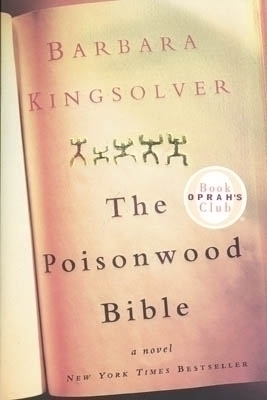You, To, Can Right Like a Blogger
You, To, Can Right Like a Blogger
 Wired News
Wired News
The Luddite
"There's a case to be made that the internet has actually helped improve the quality of writing in general," said, well, we'll call him "Topsy." I leaned in close to see if any alcohol was present on Topsy's breath. Detecting nothing beyond the usual halitosis, I surmised that he was being serious.
"Make the case," I said.
Topsy's line of reasoning, as best I could follow (for nothing is ever simple in Topsy's world), is that the easy access and limitless nature of the web allow you to expose yourself to tons of writing, both good and bad. Presumably, the average educated swine will gravitate toward the good writing and, as a result, improve his own skills as he increases his knowledge. I expressed skepticism.
"Because our chief job in life is pattern recognition," Topsy said, pressing his point, "and the chief job of the internet, through googling, is pattern recognition, what we do by living on the internet is discriminate between good and bad writing. Bad writing is, by its genes, something that doesn't convey information, whether artful or factual.
"The question is, are there enough of 'us' out there (I presume he was referring to the aforementioned educated swine), through this passive-aggressive process, to make any difference at all in this overpopulated world?"
I looked longingly at the bottle of Chianti behind the counter, but resisted the urge. It's hard enough staying with Topsy's train of thought while nursing a latte. I was left to wonder, though. If he's right -- if only a relative few in our post-literate society can tell good writing from bad, whether it's online, in print or scratched in the mud with a stick -- then what's the point?
As a mere stripling, I was advised that if I hoped to become a good writer, I should write every day. More than that, I should read good writing every day. This can be accomplished on the internet as easily as it can by reading a book or magazine. But if you're the sort who prefers People to The New Yorker, well, again, what's the point?
So my riposte to Topsy was, while the internet may be a nifty vehicle for delivering one's polished prose and penetrating insights to an impatiently waiting world, it can't help you become a better writer if you, pardon my French, suck.
Moreover, the internet leads to all sorts of unsavory writing practices, like blogging. You know, the journal of the 21st century.
Keeping a diary or journal ("journaling" they now call it, thanks to the modern world's habit of turning perfectly good nouns into verbs) was common among the literate before television came along and hooked us up to the communal drool bucket.
A journal exists for its author to reflect on, well, anything. A fading love, political turmoil, a spat with a friend, the weather in Buffalo, New York, on June 10, 1946. The writer is free to express the most intimate thoughts, because the nature of keeping a journal is to keep it private.
Occasionally, if the journal belongs to a writer or an artist or a statesman, the writing is so compelling that it finds its way into print after the author dies. In the best of those, we are invited into the mind behind the creative process and we emerge with a deeper understanding of a masterwork, say, or the thinking behind a crucial political decision.
Most journals go unread, though, and that's the way it should be. The contents were only intended for the writer's eyes, after all.
A lot of people will tell you that blogging is merely journaling online. It is not. Blogging is not private, but very public. And very few blogs involve the kind of introspection that characterizes a serious journal. Most blogging is sheer exhibitionism, either the self-absorbed ramblings of an individual blogger or the corporate site that exists for the sole purpose of making money. (If anyone sees a disturbing parallel between blogging and column writing, kindly keep it to yourself.)
This doesn't mean blogs have to be badly written. It just means that most are.
But let's be fair and balanced, like Fox News. Of the 27 million or so "daily diaries" floating like space junk in the blogosphere, there are a handful that aren't bad. Some are well written and insightful. But understand that we're talking about a precious few needles in a mighty big haystack.
Were Truman Capote alive today he might be moved to say, "That's not writing. That's blogging."
- - -
Tony Long, copy chief at Wired News, cries plaintively, "Can't anybody out there diagram a sentence anymore?"I'm a pretty decent typist and the worst part about writing while blogging is that my fingers can't distinguish homonyms/homophones well. Greatly increases the proofreading chore.



1 Comments:
This is wonderful posting. Thank you.
Bathmate
Post a Comment
<< Home